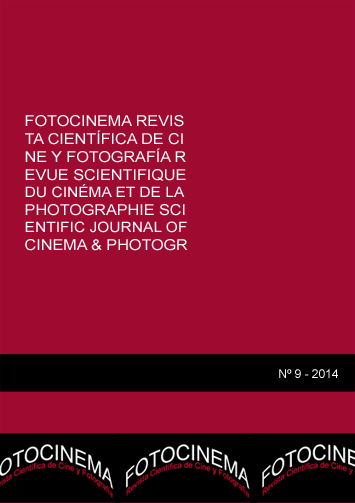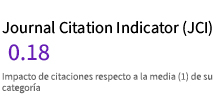Nacionalismo y producción de cine silente en Irlanda: de la complicidad al conflicto
DOI:
https://doi.org/10.24310/Fotocinema.2014.v0i9.5964Abstract
Aun cuando la producción fílmica irlandesa fue casi inexistente durante la mayor parte del siglo XX, el período comprendido entre 1916 y 1921 parecía anticipar una evolución totalmente diferente. El artículo estudia en primer lugar la aparición y breve desarrollo en Irlanda, durante la Rebelión de Pascua y la guerra de Independencia, de un pequeño grupo de modestas productoras que, con más entusiasmo que medios o técnica, logró rodar y estrenar con cierto éxito, en Irlanda y el extranjero, comedias, melodramas y documentales de vocación propagandística nacionalista. A continuación, el texto contrasta estos prometedores comienzos con la persecución moral, política y económica a que el nacionalismo católico sometió al cine en la Irlanda posterior a la independencia, que hizo imposible la reanudación de las actividades de producción cinematográfica interrumpidas en la Guerra Civil y, además, impuso elevados aranceles y una estricta censura sobre las películas extranjeras distribuidas en el Estado Libre.
Abstract:
Native film production was almost non-existent in Ireland for most of the 20th century; however, the period between 1916 and 1921 seemed the beginning of a completely different story. The article first studies the birth and brief development, during the Easter Rebellion and the Irish War of Independence, of a small number of native film companies which, with more enthusiasm than either means or skill, managed to make comedies and nationalistic melodramas and documentaries, and release them with some success in Ireland and abroad. Next, the text contrasts these promising beginnings with the moral, political and economic harassment of film by Catholic nationalists in post-independence Ireland, who made it impossible for native filmmaking to resume after the Civil War and, besides, imposed high duties and stringent censorship regulations on foreign films distributed in the Irish Free State.
Palabras clave:
Irlanda; cine silente; nacionalismo; propaganda; censura; aranceles.
Keywords:
Ireland; Silent Film; Nationalism; Propaganda; Censorship; Duties.Downloads
Metrics
Publication Facts
Reviewer profiles N/A
Author statements
Indexed in
-
—
- Academic society
- N/A
- Publisher
- Universidad de Málaga
Downloads
Published
How to Cite
Issue
Section
License
All contents published in Fotocinema Revista científica de cine y fotografía are protected under the Creative Commons Attribution-NonCommercial-ShareAlike 4.0 International (CC BY-NC-SA 4.0) license. All about this license is available in the following link: <http://creativecommons.org/licenses/by-nc-sa/4.0>
Users can copy, use, redistribute, share and exhibit publicly as long as:
- The original source and authorship of the material are cited (Journal, Publisher and URL of the work).
- It is not used for comercial purposes.
- The existence of the license and its especifications are mentioned.
There are two sets of authors’ rights: moral and property rights. Moral rights are perpetual prerogatives, unrenounceable, not-transferable, unalienable, imprescriptible and inembargable. According to authors’ rights legislation, Fotocinema. Revista científica de cine y fotografía recognizes and respects authors moral rights, as well as the ownership of property rights, which will be transferred to University of Malaga in open access. The property rights are referred to the benefits that are gained by the use or the dissemination of works. Fotocinema. Revista científica de cine y fotografía is published in an open access form and it is exclusively licenced by any means for doing or authorising distribution, dissemination, reproduction, , adaptation, translation or arrangement of works.
Authors are responsable for obtaining the necessary permission to use copyrighted images.














13.png)



